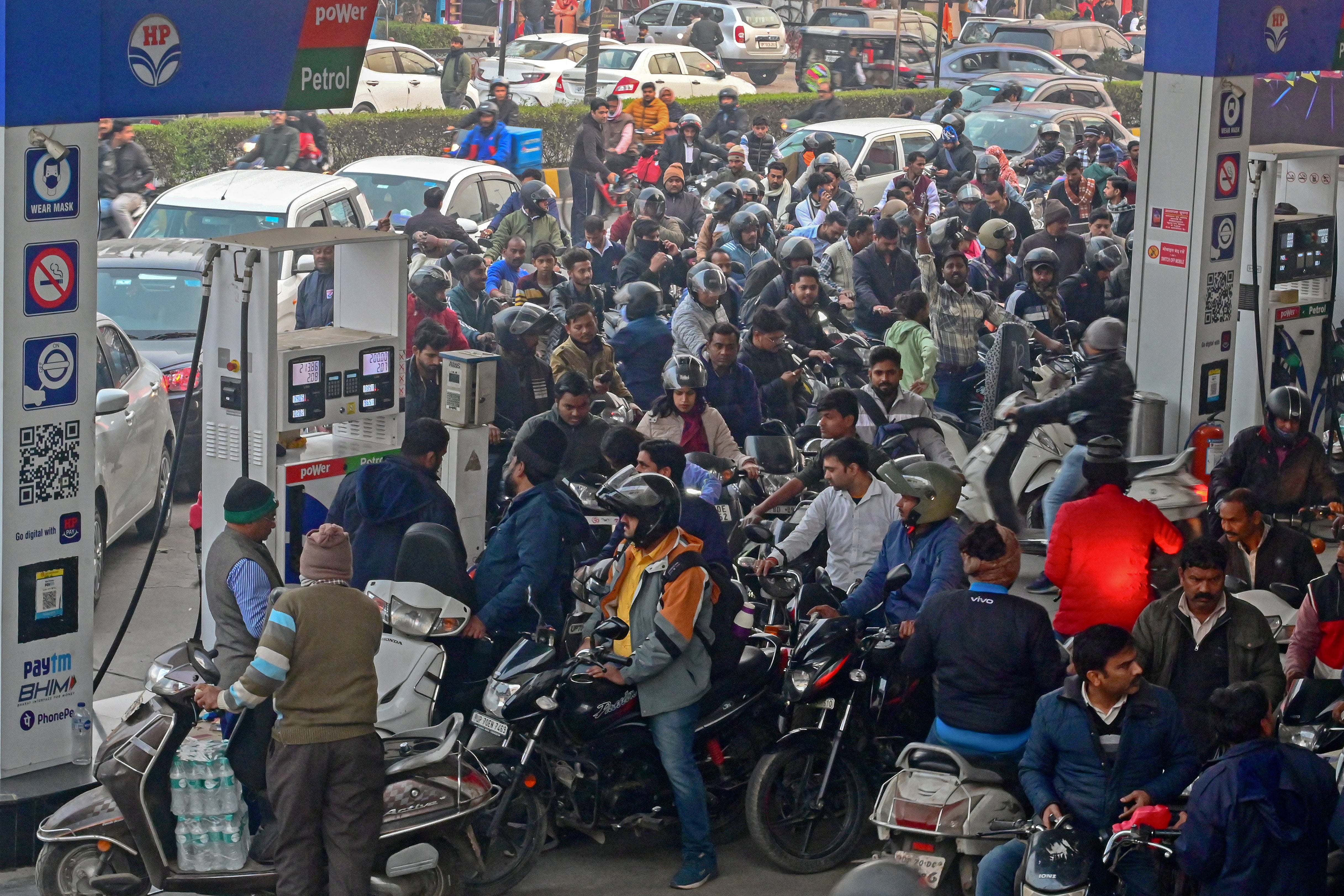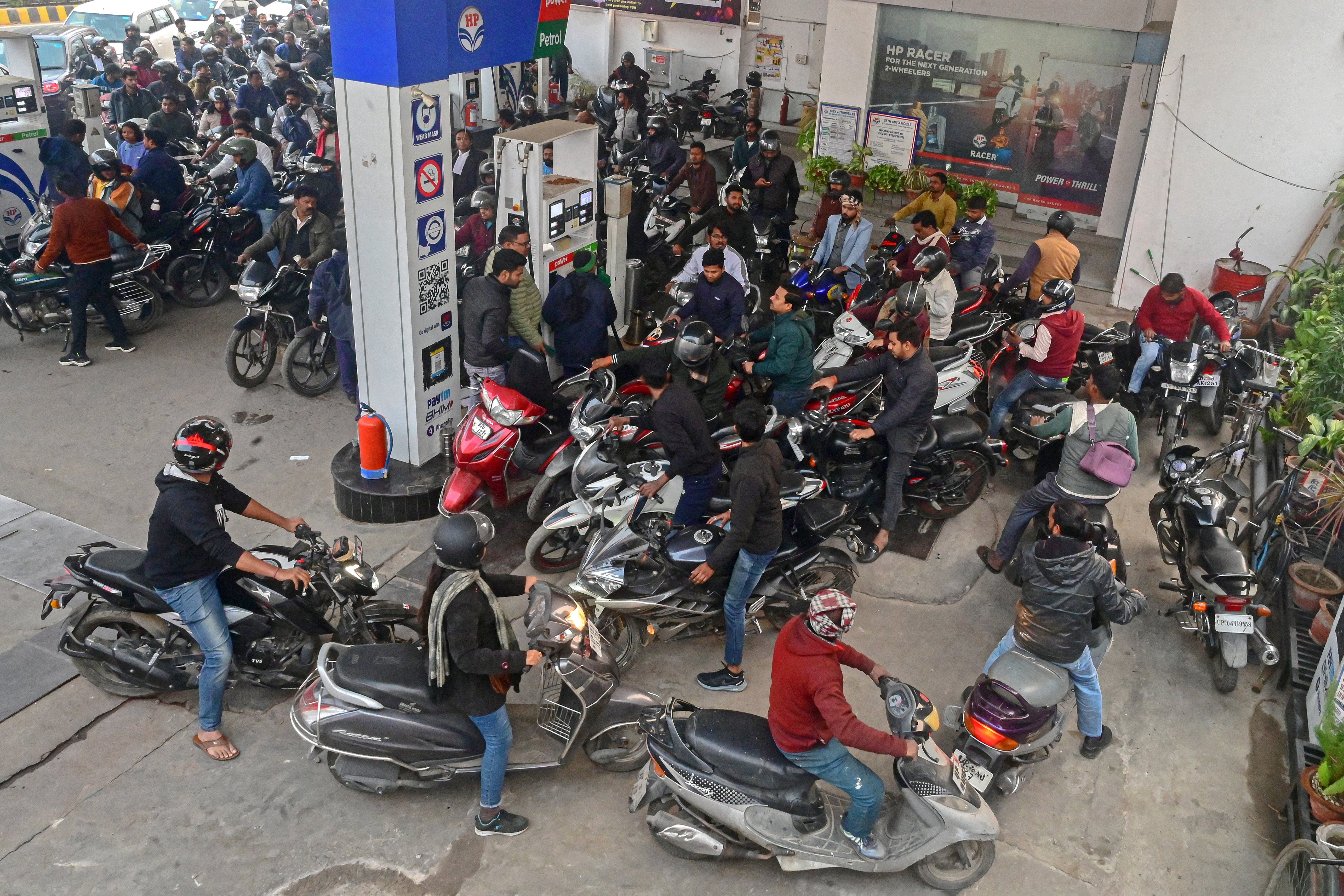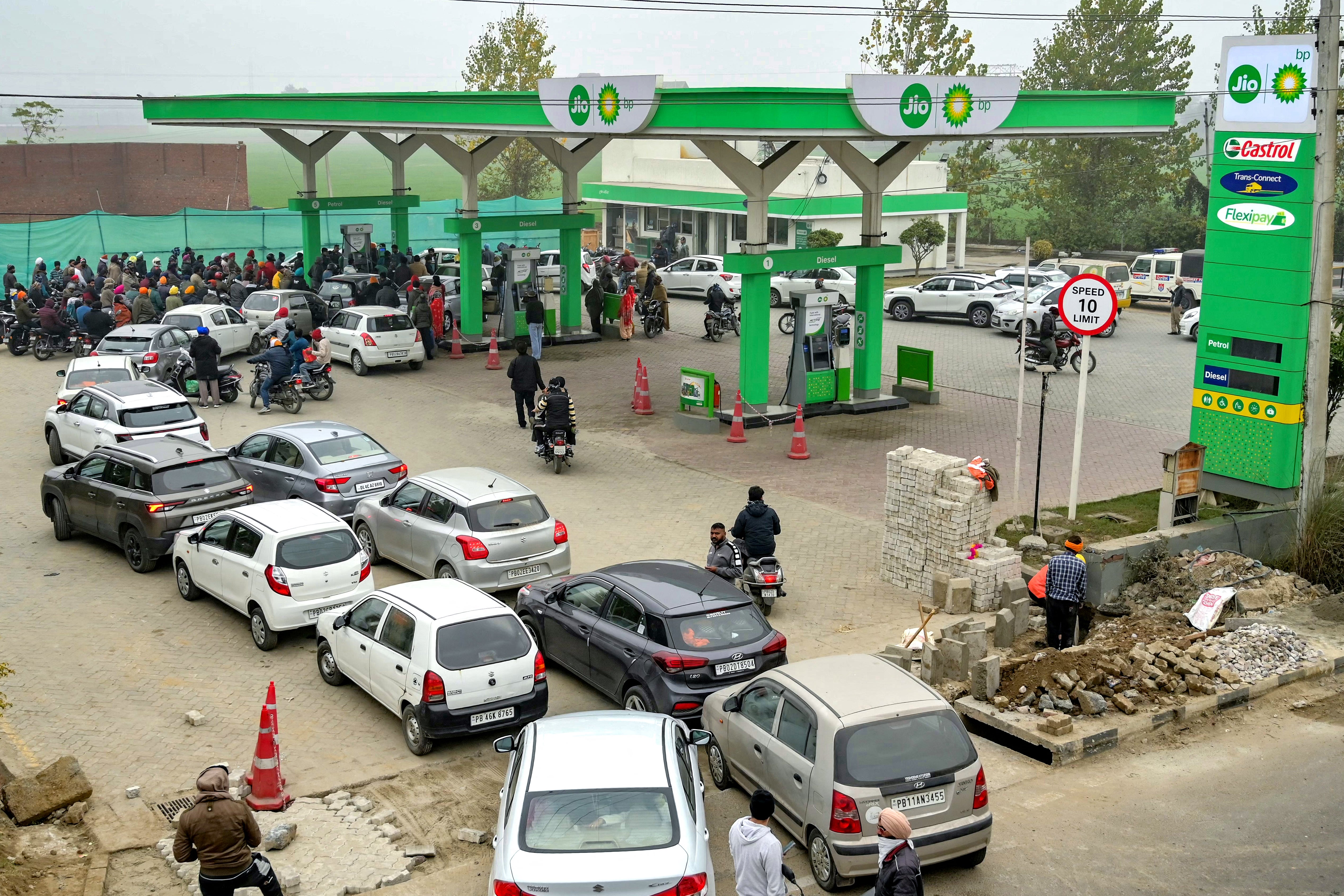Petrol pumps run dry across northern India as truckers protest new hit and run laws
Nationwide agitation disrupts supply chain, leading to fuel shortages in north and west

Thousands of fuel stations ran dry in parts of India as truck drivers began the new year with a nationwide protest against changes to the country's hit-and-run laws.
Huge traffic snarls and sporadic incidents of violence were reported from northern and western states of India on Tuesday as the truck drivers blocked roads in protest.
Under the new law, hit-and-run cases where drivers flee the scene without informing authorities after causing serious road accidents would face punishment of up to 10 years in prison or a fine of Rs700,000 (£6,648).
The agitation, which began on Monday, has disrupted many supply chains, leading to a shortage of gas cylinders and increased prices for vegetables and other essential commodities.

The changes to punishments for hit-and-run cases are listed under the country’s new criminal code, the Bharatiya Nyay Sanhita, which replaces the colonial-era Indian Penal Code. It was signed into law in December 2023 after being cleared by both houses of the Indian parliament, although many of the country’s opposition MPs were suspended at the time.
Over 2,000 fuel stations ran out of petrol as people rushed to fill up in anticipation of an expected truckers' strike, according to PTI news agency.
The state government in Maharashtra urged the local police to ensure an uninterrupted supply of petrol and diesel.
"Don't believe in rumours. There [is] enough stock available in Mumbai and we are providing adequate security to the tankers supplying petroleum products," the Mumbai city police said in a post on social media.
Dhramveer Chauhan, the owner of a fuel station in Uttar Pradesh told the Times of India that the station had sold over 12,000 litres of fuel in 12 hours on Tuesday compared to the daily average of 10,000 litres.
Commuters braved heavy traffic in the neighbouring state of Madhya Pradesh while a temporary restriction was imposed on the sale of fuel in Chhattisgarh state.
The agitation turned violent in Rajasthan, where a mob set a police vehicle ablaze and pelted stones at security personnel, injuring three people.
Police in the western state of Gujarat reportedly arrested 23 people for attacking a constable, who was clearing a road blockade. Video from the incident showed the police constable being chased and assaulted by the protesting mob.

The nationwide protest was called off after two days on Tuesday evening following an assurance from the federal home ministry to consult the representative of the truckers before implementing the law.
The home ministry in a statement said the government had taken notice of the concerns of the truckers regarding the provision of 10 years of imprisonment and held detailed discussions with the representatives of the All India Motor Transport Congress (AIMTC).
"The government wants to point out that these new laws and provisions have not yet come into force. We would also like to point out that the decision to invoke Section 106 (2) of the Bharatiya Nyay Sanhita will be taken only after consultation with the All India Motor Transport Congress," the statement read.
Bal Malkit Singh, chair of the core committee of the AIMTC, urged the protesting truckers to return to their jobs. "We have conveyed your concerns to the government. The law has not been put into force yet and I assure you that we will not let this law come into force.
"We appeal to you to go back to your vehicles and start driving without any fears," he added.
Join our commenting forum
Join thought-provoking conversations, follow other Independent readers and see their replies
Comments
Bookmark popover
Removed from bookmarks